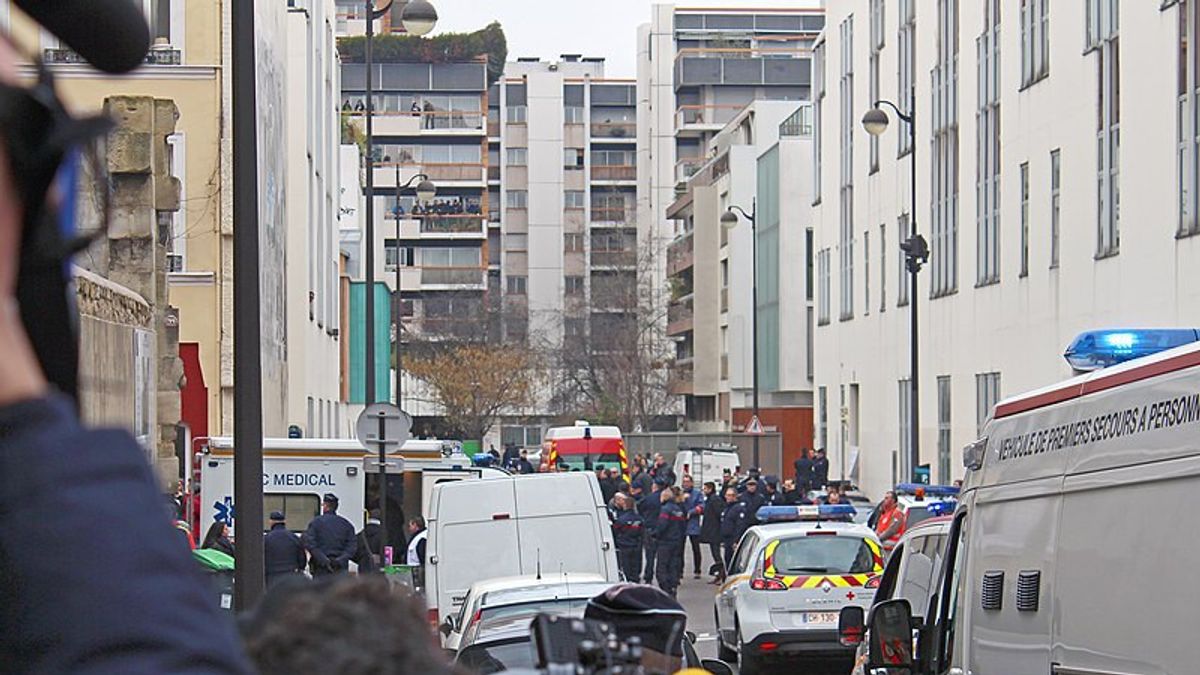JAKARTA - The main suspect in the attack on the Charlie Hebdo magazine office in 2015 was infected with COVID-19. This prompted the court to postpone the trial which had been held on September 2.
Citing France24, Monday, November 2, the suspect named Ali Riza Polat is accused of helping to attack 12 people at the office of the satire magazine Charlie Hebdo in 2015. Polat is the most serious of all the suspects. If found guilty, he could be sentenced to life imprisonment.
The 35-year-old man reportedly vomited before being examined by a doctor. After being checked, he had COVID-19 and made the judge postpone the trial.
Meanwhile, 10 of his colleagues who were involved were also required to test for COVID-19. The trial could only begin after the results of their medical tests came out, said Chief Judge Regis de Jorna.
Previously, the defense attorney would file a defense on November 6, 9, 10 and 11 with a verdict expected on November 13. However, because the suspect has contracted COVID-19, it is certain that all these schedules will be postponed.
The total perpetrators of the Charlie Hebdo attack in 2015 were 14 people. They were tried in a special terrorism court for supporting the trio of extremists who attacked Charlie Hebdo's offices in January 2015.
Two men with guns come to Charlie Hebdo's office. Another man attacked a policewoman and four people at a Jewish supermarket.
As a result of the attack which lasted for three days, 17 people were killed. The three perpetrators have been shot dead by police.
Who is Polat?Described as Amedy Coulibaly's "right hand man", Polat was born in Istanbul but moved to France when he was three years old. Like Coulibaly, Polat grew up in the town of Grande Borne in Grigny, a suburb of Paris.
Polat was considered the main liaison during the attack and held the key to providing weapons. Polat was about to flee to another country but the escape attempt failed.
Meanwhile on Friday 30 October France began a second lockdown in just seven months in a national effort to curb a new spike in COVId-19 cases in the country. But with the lessons learned from the first key, the government has made some significant changes to the rule of the first key this time.
Kuncitara is expected to last until at least December 1. France's COVID-19 cases number nearly 1.3 million since the start of the pandemic.
The English, Chinese, Japanese, Arabic, and French versions are automatically generated by the AI. So there may still be inaccuracies in translating, please always see Indonesian as our main language. (system supported by DigitalSiber.id)









